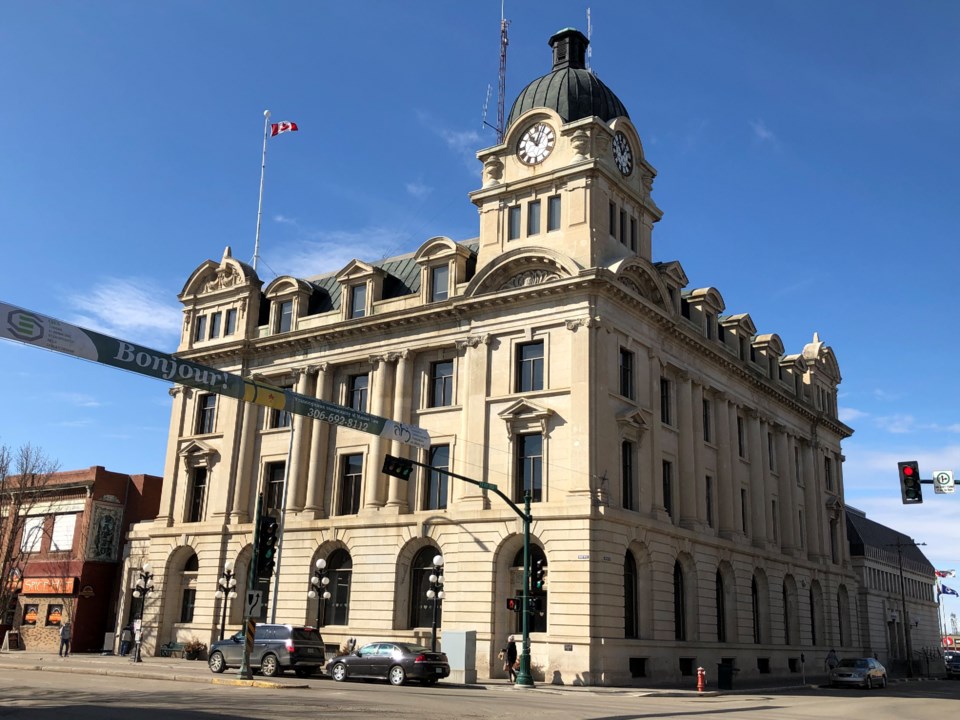MOOSE JAW - The City of Moose Jaw’s smart water meter installation program is nearly 90 per cent complete, although there are two dozen homeowners opposed to the installation of the devices.
The four-year capital project to replace the roughly 12,500 water meters began in March 2022, after city hall selected Neptune Technology Group Canada Co. to lead the project.
The project is pegged at roughly $7 million.
Most meters replaced
As of July 30, 2024, Neptune had replaced 11,184 water meters out of 12,560 devices, a completion rate of 89.04 per cent. The company expects to finish this year, although there will be some carryover into 2025 because of supply chain issues, a council report said.
Meanwhile, there have been 938 properties on a “soft refusal” list. These homeowners have not engaged or communicated with Neptune or city hall about what they want to do. This could be because they have not seen or received the eight notices that both parties have sent.
Among these soft refusals are 24 homeowners who have given a “hard refusal” in allowing the devices’ installation, according to the report. The engineering department is consulting with the in-house legal team about what options are available to address some homeowners’ health-related concerns with smart meters on their properties.
“All hard refusals will be reviewed and discussed with the property owner on a case-by-case basis,” the document noted.
Cutting off services
The city — through Neptune — will send these 938 homeowners several reminders about upgrading their meters. A final notice letter reminds residents that the upgrades are “mandatory in accordance with Bylaw 5152. Property owners who do not book an appointment may be subject to penalties, which may include the termination of water service.”
Meanwhile, 29 properties have “homeowner tasks” that residents must complete — like moving a water heater — before Neptune can access the water line to install the devices.
Moreover, city hall’s engineering services must complete 148 “utility tasks,” which includes co-ordinating with the city’s meter shop to finish those tasks quickly.
“These instances largely revolve around curb stops that are inoperable, inaccessible or have not been located,” the document noted.
Also, Neptune must return in 2025 to install 261 remote shut-off meters at high-turnover properties or places with existing payment issues. City crews will complete any remaining installations after Neptune finishes what it can.
Council discussion
While Neptune has changed most meters, some residents think this process is a scam because the letter notifications do not indicate that Neptune is working with the city, said Coun. Dawn Luhning. She wondered if the logos of both parties had been added to letterhead to assuage people’s concerns.
“I wonder if some of these last (hard) refusals, if they’re not connected. Maybe that’s the reason … ,” Luhning added.
Bevan Harlton, director of operations, said he would have to confirm whether such letterhead changes have occurred.
Coun. Doug Blanc thought some soft refusals might be because the properties are rentals and the renters don’t respond. He wondered if city hall planned to contact the actual owners, while he wondered how city administration planned to address the 24 “hard refusal” people.
Harlton replied that city hall communicates directly with the owners, while there is plenty of overlap in communications with phone calls, door hangars and letters.
Meanwhile, with those 24 outstanding properties, the city must replace those water meters because they are obsolete and city hall doesn’t plan to fix two types of water meters, he continued. Also, Neptune is contracted to collect data from the new devices and not the old ones.
Harlton reiterated that his department is working with the legal team to address this issue. Moreover, he noted that the city requires reluctant homeowners to provide evidence from their health-care practitioners about why smart water meters shouldn’t be installed near them.
“Neptune … (has) reported no incidents of health problems with the infrastructure they install. It’s not something I’ve seen or they’ve seen in the past,” he added. “Health Canada confirms from their analysis that this technology does not (pose) a health risk and is common among Canadian municipalities.”
Coun. Jamey Logan said he’s heard complaints from commercial properties about not receiving notices. This could be because the notices have been “somehow lost in transition” and the only mail owners receive is a final notice.
Furthermore, he thought city hall should create a hard end date — by October 2025 — to complete the project so they see financial savings. Otherwise, they’ll still be sending out paper notices for no gain.
Meanwhile, with hard refusal homeowners, he thought the city should install the new water meters because — aside from the health concerns — some people could be refusing since they use more water than their meter reports.
Coun. Kim Robinson said he had received some complaints from homeowners about being charged double for water. He hoped that was just a hiccup during the transition period.
The city estimates how much water people use daily when smart water meters are not installed, with nine cubic metres per day being the guess even though that figure is often higher, said Brian Acker, director of finance. For people who delayed installing the new devices, the city estimated their water usage four times in the past year, so yes, those homeowners were overcharged.
“Once the meter is in, you will be credited,” he added.
The next regular council meeting is Monday, Sept. 9.




